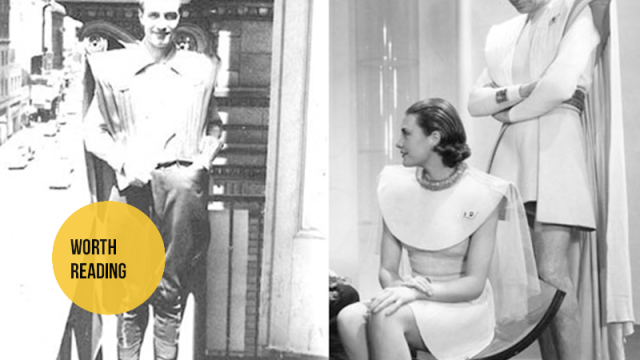The start of the weekend means it’s time for Worth Reading, a roundup of the best games writing around.
Image Credit: Yahoo!, DVD Talk, Stuff Mum Never Told You
Hey, You Should Read These

Cosplay by Angela Bermúdez, photo by Essam Elbably.
If you, like me, know nothing about the cosplay’s history, Jennifer’s article is highly recommended. Though her piece is explicitly focused on explaining how Myrtle R. Douglas has been categorically overlooked as the woman who might as well be called the creator of cosplay, it’s a general primer. It’s amusing to think about early fan conventions in the 1930s, a time period so far removed from my own that it might as well not exist. I mean, folks dressing up in H.G. Wells-inspired costumes? Adorable.
Morojo and Ackerman shook the newly developing geek culture to its core with those costumes, laying the foundation for a hobby that would become a majorly significant expression of fandom before the 20th century was out.
But here’s the thing: while towering Ackerman made a great model for his costume, he had nothing whatsoever to do with its construction. Both of the costumes were envisioned, designed and laboriously hand-made by Morojo!
Forrie deserves partial credit for the invention of cosplay, sure: he was a grown man who boldly wore a shiny space cape through the streets of New York in 1939. And what the hell, we’ll presume that they thought up the idea of wearing costumes to the con together — it would be ungenerous to suppose otherwise.
But Morojo!! Morojo was the person who single-handedly brought fantasy into real physical space when she created and wore her own costume.
Given modern cosplay’s intense focus on individual creativity and craft, it’s bizarre that Ackerman is the one most often credited as being the O.G. cosplayer in fan literature. Morojo, who made the futuristicostumes, deserves the bulk of the credit.

Kotaku has run several excellent (if depressing) features about crunch before, but it’s not often that we see developers openly wrestling with how to cope with the reality. Yes, it would be nice if crunch disappeared (or got more manageable), but in the event that it doesn’t? Matthew Burns, who’s written for us before, has a lengthy piece that explores this idea.
In debates on crunch we tend to argue about whether or not there are certain circumstances when it is acceptable — “good” versus “bad” crunch — and what should be done by the industry at large to curtail the “bad” kind. I agree it would be great if the industry changed from the top down: Generally speaking, leaders could stand to take more responsibility to help improve conditions and make game development a welcoming and sustainable career.
But change of this kind is likely to be slow and piecemeal in coming. There are a huge number of studios all over the world run by people with sharply differing ideas about how to go about it — too many for them to all agree and make changes unanimously.
If You Click It, It Will Play
Oh, And This Other Stuff
- Mike Diver explored how we might make the Internet more welcoming , given all the ugly harassment and vitriol one finds in most corners.
- Nathan Ingraham had trouble stomaching the realism of Battlefield 1.
- Kieth Stuart celebrated the end of Uncharted by discussing what it’s like to say goodbye to characters and worlds we love.
- Andrew Reiner tried to explain video game violence to his young daughter. That sounds like a challenging conversation.
- Justin Monroe profiled Warcraft actor Travis Fimmel, who’s also a total Warcraft fanboy. Living the dream, buddy!
- Seanbaby came up with five things from your childhood that actually suck. (That sounds lame, I know, but read it. Seanbaby is hysterical.)

Comments
One response to “The Origins Of Cosplay Date Back To The 1930s”
you they date to the first time someone dressed up for a show, like romans? and much older?